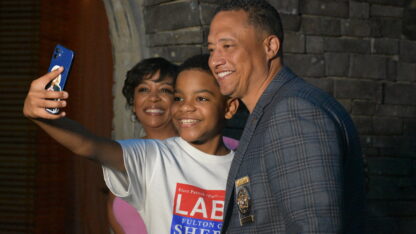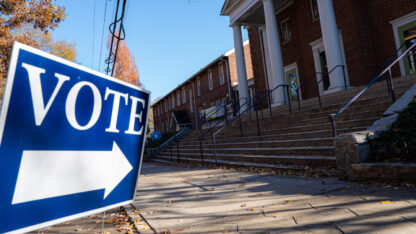Hard-Rocking Headbangers Have Happier Outcomes, Study Finds
There’s a long tradition of parents hating their kids’ music, and kids liking it that way.
Take 1980s heavy metal.
Rock bands like Twisted Sister and Judas Priest were reviled by millions of parents, and attacked by groups like Tipper Gore’s Parents’ Music Resource Center for their glorification of sexuality, drug use and the occult. Things got so dark that some critics even thought metal might lead to suicide in some listeners.
But for all that anxiety in the 80s, how did those teenage fans playing their records backwards actually turn out? Humboldt State University psychologist and “former heavy metal groupie” Dr. Tasha Howe put together a study to find out, and her results yielded some surprises.
Howe and her students studied 377 adults aged 35 to 60 years old to see how aging metalheads compared to their non-metal counterparts.
What the study found, was that people who were metalheads in the mid-80s today were very similar to those they were compared to: “middle-class, gainfully employed and relatively well-educated.”
The study did find a few major differences however.
“Where we did find some interesting differences is that the metal groups engaged in far more drug, alcohol use [and] risky sexual behavior, but when they looked back they reported that their use was significantly more happy than the middle-aged comparison. They had no regrets about anything they did in their youth, whereas the middle-aged comparisons reported having a lot of regrets about things they did in the 80s … [The middle-aged group] really just seemed to be less happy and well-adjusted than the metal group,” Howe said.
Howe partially attributed this difference to the collective identity and togetherness of the metal scene.
“They might have been drawn to these metal cultures as a form of social support and helping them cope and find a sense of happiness and purpose.”
Howe discussed more findings from the study and how reactions to metal paralleled the reactions to poet Charles Baudelaire with producer Kate Sweeney.
9(MDAxODM0MDY4MDEyMTY4NDA3MzI3YjkzMw004))







